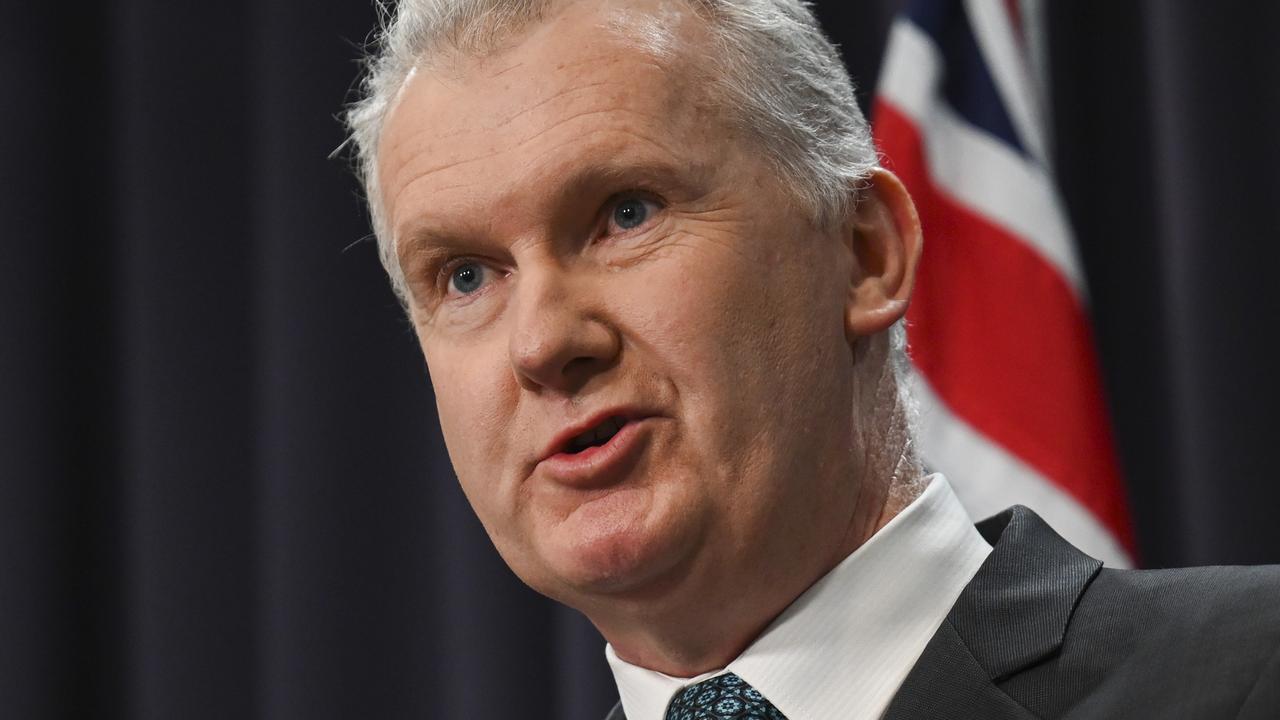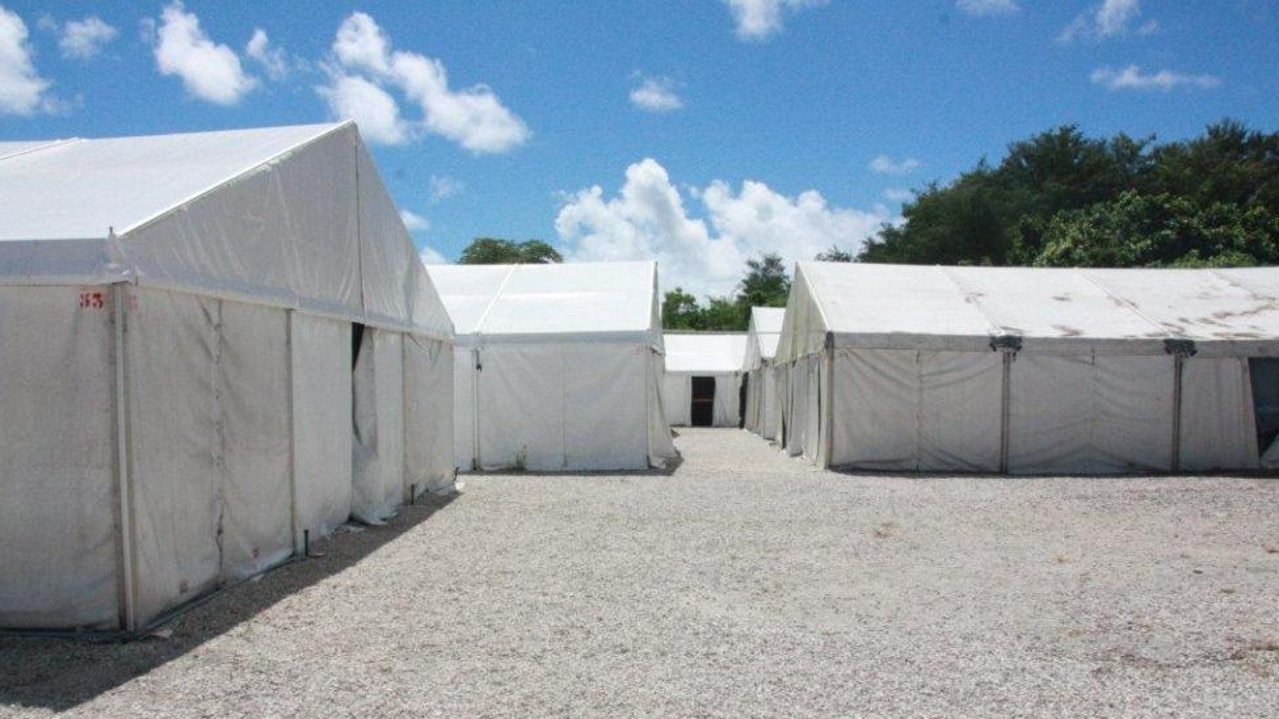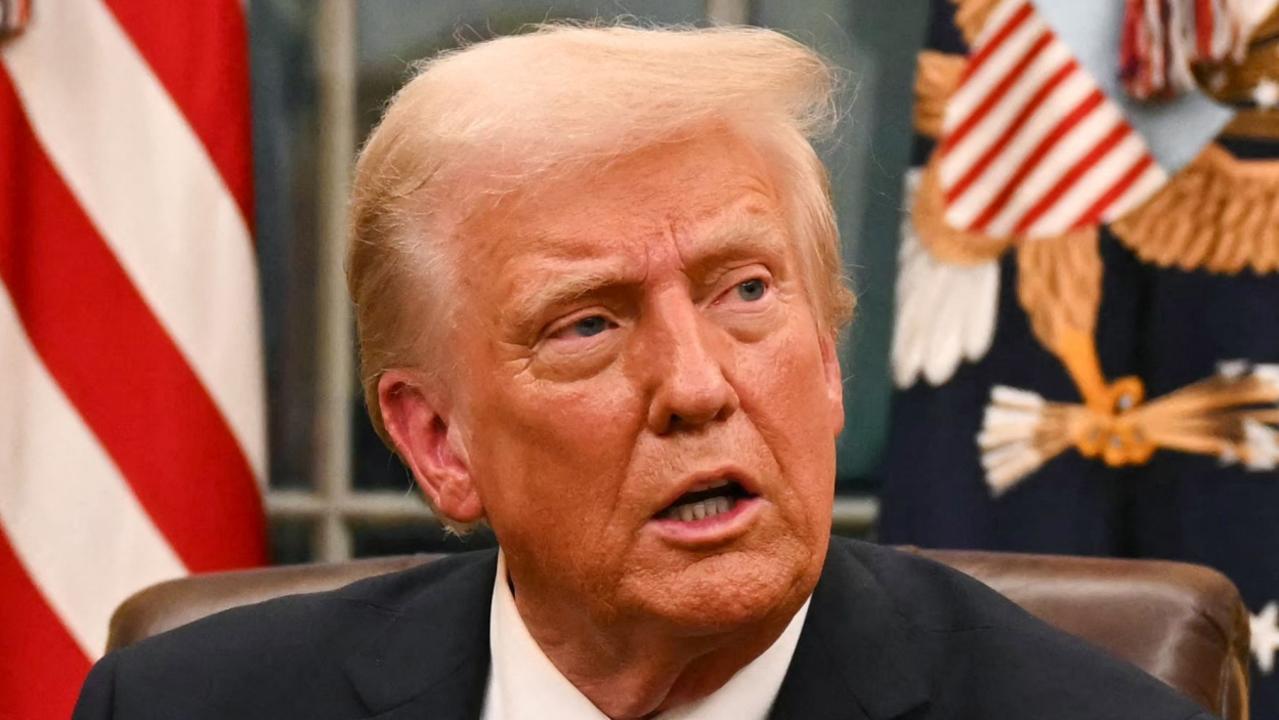Labor MP Andrew Leigh’s search for who leaked top secret Iraq report
THE document was marked “beyond top secret”, but someone leaked it anyway. Now, years later, the culprit’s identity is tantalisingly close.
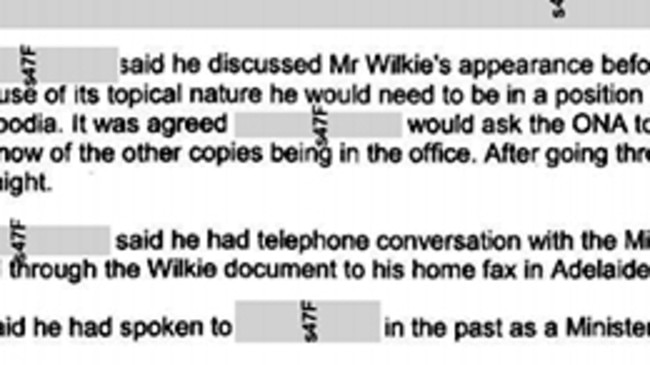
IT IS a notorious cold case in the history of Australian national security leaks and a Labor MP is determined to have it solved.
Opposition front bencher Andrew Leigh has narrowed his quarry to a name on the mysterious page 5 of an Australian Federal Police report he obtained under freedom of information provisions.
Dr Leigh’s problem is that just about everything on page 5 is redacted — obscured and unable to be read, on police instructions.
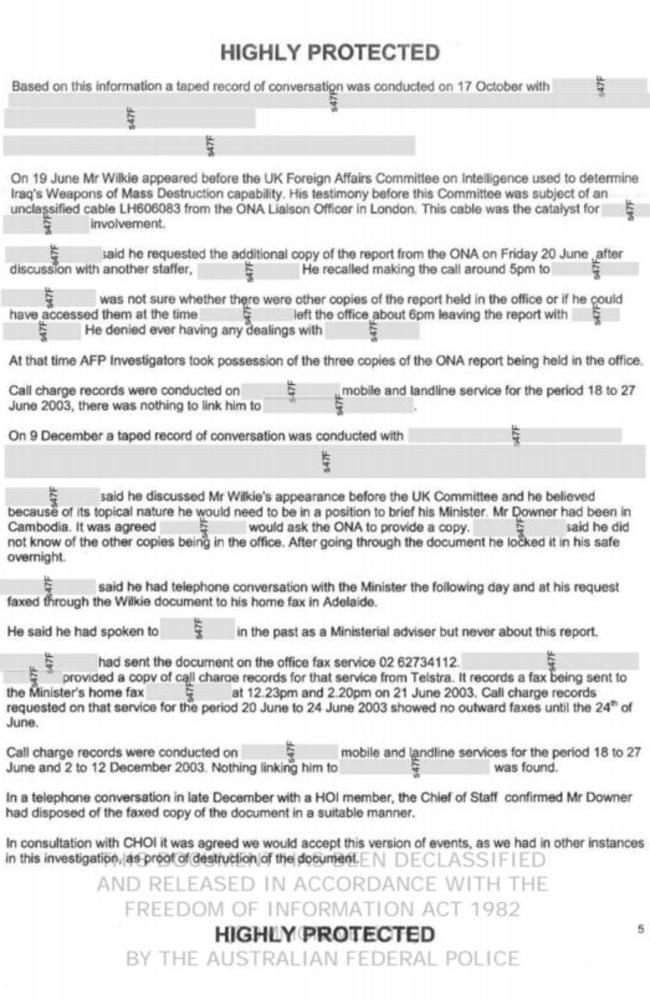
The shadow assistant treasurer is still determined to continue the fight for the blocked out names. He has taken his case to the Administrative Appeals Tribunal and is confident the person he has been seeking since 2014 will be revealed.
But the national security leak goes much further back, to 2003.
In March that year Andrew Wilkie quit as an intelligence analyst at the Office of National Assessments and went public with his criticism of the decision by the government of John Howard to join the invasion of Iraq.
In June 2003, News Corp columnist Andrew Bolt published an article which quoted from Mr Wilkie’s four-page secret report on Iraq issues.
Bolt gave an unflattering assessment of the document’s contents and the author, and sneered at Mr Wilkie’s “alarmist” grounds for opposing the war.
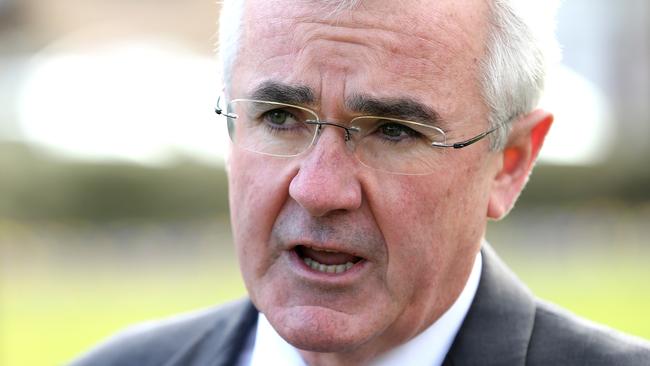
It was clear from significant extracts he had seen the Wilkie report, ‘Iraq: Humanitarian Dimensions’, which had been marked top secret, Australian Eyes Only, and code worded.
It was “beyond top secret” because it contained names of informants, Mr Wilkie told news.com.au.
Dr Leigh said the Wilkie document could potentially identify agents, “And to have that leaked was extremely serious.”
There is no statute of limitations on leaking intelligence secrets, and the penalty from a court could be years jail.
In September 2003, the Australian Federal Police began inquiries into the leak but in June 2004, the government said the investigators had concluded there was “no direct admissible evidence” to identify the leaker.
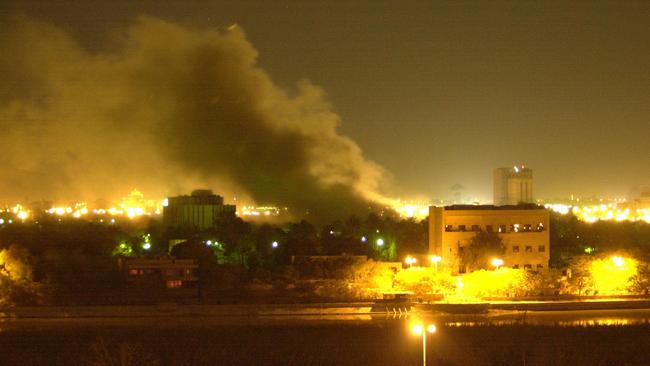
The Liberal government then dropped the issue, but the Labor opposition targeted Foreign Minister Alexander Downer, who denied being behind any security breach.
Dr Leigh is maintaining that targeting. He has sought access to the AFP’s Post Operation Assessment of May 2004, “and specifically whether certain names on page 5 of the document should be redacted”.
He wants the Administrative Appeals Tribunal to retract the redact and has been contesting its refusals since last September.
“Given that the document was classified as Top Secret, AUSTEO (Australian Eyes Only), and code-worded, this leak constitutes one of the most serious national breaches of recent decades,” Dr Leigh has written in his latest appeal to the AAT.
“The proven leak of a secret document would constitute a breach of section 79 of the Crimes Act, with penalties ranging up to seven years jail.”
Mr Wilkie was elected to Parliament in 2010, the same year as Andrew Leigh.
The Tasmanian independent told news.com.au he was only an observer of the Labor moves — but an interested observer.
“What Labor’s up to at the moment is entirely their own work,” he said.
“I did for a time badger the AFP to pursue this matter. I actually have given up the hunt. (But) I am pleased Labor is pursuing this matter because it was top secret.”
“That sort of stuff can’t be leaked without someone being held to account.”


